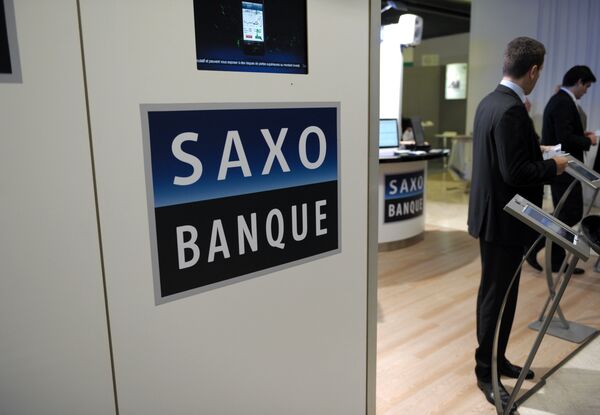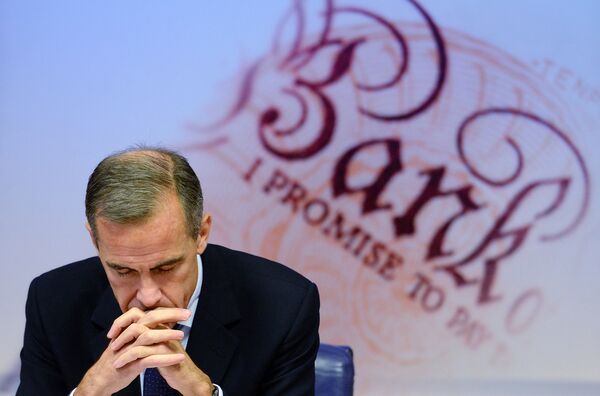The bank's global macro outlook maintains recession is more likely than not in the next 12 to 18 months. Moreover, Saxo is concerned about a significant "perception-versus-reality gap" in the market in respect of recession — namely, present economic conditions should inspire caution and conservatism among consumers, businesses and governments alike, but economic actors are appearing distinctly unaverse to risk.
The bank said high expectations of economic stability, or prosperity, in the years leading to 2020 were based purely on hope — and "hope belongs in church on Sunday."

In the UK, banks are issuing loans and credit products at an alarming rate — the bubble has served to postpone a long-anticipated Brexit-inflicted economic slowdown, but how long fiscal gravity can be defied is questionable. Saxo is not alone in expressing grave concern about debt-dependency among consumers — the International Monetary Fund (IMF) lashed out April 7 at unconventional monetary policies instituted since the Great Recession of 2008/9, such as nigh on non-existent interest rates, which have made borrowing easier than ever.

Monetary authorities believed such measures would discourage saving and promote spending and investment, which they have — although much saving and investment has been fueled by a surge in borrowing at knockdown rates. In turn, any rise in interest rates could cripple economies, rendering millions unable to repay what they've borrowed.
Nonetheless, in order to make products such as credit cards, overdrafts and loans profitable, the Fund said, banks may well be forced to pass costs on to consumers, costs which they again can ill-afford. As evidenced by the Monte dei Paschi di Siena crisis in December 2016, banks across Europe are struggling to sustain acceptable levels of capitalization and profitability. Olivier Vardakoulias, senior economist at the New Economics Foundation, previously told Sputnik that future bailouts of ailing European financial institutions were likely:
"The problem is the amount of non-performing loans in banks' coffers, which is a large chunk of the total loans issued in the country. These banks are fragile, and this may translate into a slow-motion panic, whereby people move en-masse to withdraw their savings and/or move them to other countries, such as France and Germany. For the time being this will be restricted to Italy, but the problem extends to countries such as Portugal and Spain and could spread further."
Oct 12: Italy rules out state aid for Monte dei Paschi
— Jamie McGeever (@ReutersJamie) December 22, 2016
Dec 21: Italy approves €20B plan to prop up banks, starting with Monte dei Paschi
Another source forecasting a potentially impending global recession is macroeconomic consultancy GnS Economics. The conclusion of the firm's analysis of the first quarter of 2017 is unambiguous — "from a purely mathematical perspective," the world is closing in on a global recession. The only question, the analysis stated, is how it will play out.
"Whether recession is dead ahead or somewhat further down the road depends crucially on the policy that China takes. Recent actions indicate authorities in China have taken their foot off the gas — if this interpretation is correct, global recession is just a few months ahead. Current asset valuations are now sustained through the artificial liquidity, provided by the central banks via quantitative easing and low interest rates, indicating any crash may go global exceptionally fast. A panic in one major asset market could cause a rapid deterioration of the global economy," the note said.
Gns Economics' analysis isn't baseless speculation — the firm's prediction models foresaw the Financial Crisis, at a time few others did. Furthermore, the firm state the prospect of a future recession would be more obvious to outside observers, but central banks have effectively "hidden" several indicators via the liberal use of unconventional monetary policies.



